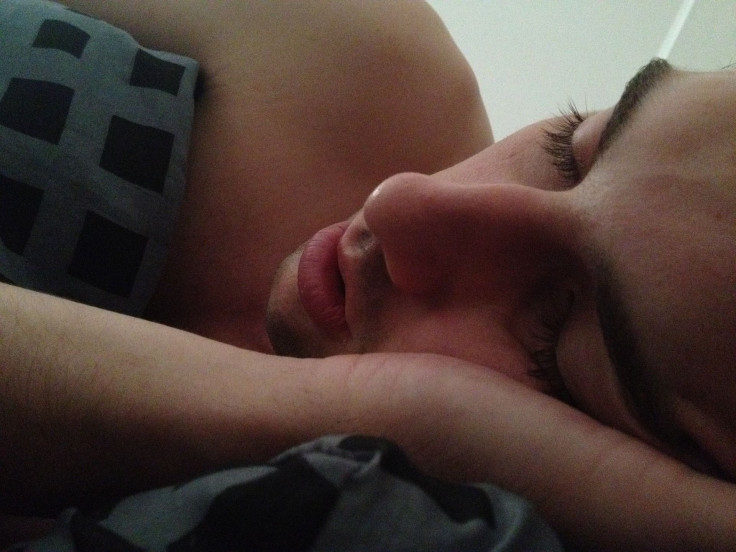Sleep Apnea May Reduce Levels Of Brain Chemicals Associated With Waking Behaviors And Mood

Anyone with a significant other or roommate that snores is well aware of the struggle: Not only is snoring annoying, but these interruptions could happen as frequently as 30 times per hour. The latter could be a sign of sleep apnea, a condition marked by repeated pauses in breathing or shallow breaths, the National Heart, Lung, and Blood Institute reported. And according to a new study published in The Journal of Sleep Research, sleepers may experience adverse effects in the daytime.
People with sleep apnea often report issues with memory, decision–making, depression, stress, and poor concentration during waking time. To better understand why, researchers from the UCLA School of Nursing examined a brain region called the insula; it regulates emotion, thinking, and physical functions like blood pressure and perspiration. They found that people with sleep apnea had decreased levels of two important brain chemicals capable of having a large effect on waking behaviors and mood: glutamate and gamma-aminobutyric acid (GABA).
GABA acts as an inhibitor in the brain, affecting endorphins and mood by slowing things down — a kind of brake pedal to keep people calm. On the other hand, glutamate is an accelerator, and when levels are high, the brain is in a state of stress. In addition to decreased brain function, increased levels of glutamate can also be harmful to nerves and neurons.
"In previous studies, we've seen structural changes in the brain due to sleep apnea, but in this study we actually found substantial differences in these two chemicals that influence how the brain is working," Paul Macey, the lead researcher on the study and associate professor at UCLA Nursing, said in a press release. He added that, in some ways, this is a good thing. "In contrast with damage, if something is working differently, we can potentially fix it."
The researchers hope to continue their work on sleep apnea, with future studies set to determine whether treating sleep apnea would reverse structural changes in patient's brains. Right now the leading therapy is currently Continuous Positive Airway Pressure (CPAP), where patients wear a face or nasal mask during sleep.
If new therapy does not reverse change, researchers will return to exploring alternative treatments that could be more effective than CPAP and other methods. The team is also interested in studying the impact mindfulness exercise has on the condition, particularly if it can reduce glutamate levels through calming the brain.
Source: Macey P, Sarma M, Nagarajan R, Aysola R, Siegel J, Harper R, et al. Obstructive sleep apnea is associated with low GABA and high glutamate in the insular cortex. The Journal of Sleep Research. 2016.
Published by Medicaldaily.com



























